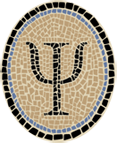The Schnapsen Log
Close Quarters
Martin Tompa
Friday, June 30, 1944. London, U.K. It is late evening. Anyu, Hans, and Tibor sit on hard wooden chairs in their Anderson shelter and talk quietly. Apu is lying on one of the bunk beds, unsuccessfully trying to sleep. He occasionally moans softly. From outside they hear the periodic characteristic noise of a German V-1 “buzz bomb”, a pilotless rocket launched from the coast across the English Channel and equipped with a 1900 pound warhead. The first thing you hear is a buzzing from the rocket’s pulse engine, sounding something like a giant insect. When the engine cuts off there are a few moments of silence, and then the explosion on impact. Some of the explosions are frighteningly near and deafening.
More than two million Anderson shelters, the type in which they now sit, have been distributed in the U.K. The quarters are cramped: corrugated metal boxes six feet high and six feet long, rounded at the top and buried in the ground to a depth of four feet, designed to accommodate up to six people. They offer some protection from blast shock, flying debris, and being crushed in a collapsing house. They offer no protection from a direct hit.
“That last one was close,” Anyu says in a quiet voice. “You could feel it right up through your legs.”
Hans seems exhausted. “I am so tired of spending every night in this shelter,” he complains. “I honestly thought the war was nearly over when the Allies took Normandy beach three weeks ago. Instead we’ve been subjected to a constant barrage of Hitler’s Revenge Rockets since then.”
“Give thanks that Phyllis and your two little sweeties are safe in Swansea with Phyllis’s parents,” Anyu reminds him. Their second baby Elizabeth had been born in April. “That gives me great comfort at times such as this.”
“Yes, I suppose I had better look at the bright side, too, as you always seem to do.”
Tibor shifts in his seat and says, “I read in today’s newspaper that one hundred of these V-1 bombs are now hitting London every single day. Our anti-aircraft guns can only intercept a fraction of what Germany is sending our way. The War Office says that the only way to stop the V-1 attacks is if we can destroy all their launch sites across the Channel.”
They hear another buzzing warning, then quiet, and finally an explosion in the distance.
“I am going to join Apu and try to get some sleep,” Anyu says. “I am bone tired.”
“Good night, Anyu,” both sons say simultaneously. “I hope you can sleep with all this noise,” Hans adds. “We will try not to add to it.”
When she has lain down, Tibor turns to his oldest brother and says softly, “I know what will cheer you up. Let’s play some cards.”
Hans agrees with a smile. There’s nothing like chance, mathematics, and family to take one’s mind off one’s troubles. Hans does not have to wait long before the first thought-provoking situation arises.
Unseen cards:
♠ TKJ
♥ A
♣ —
♦ TQTibor’s cards:
♠ AQ
♥ K
♣ AK
♦ —Trump: ♣J
Stock: 1 face-down card
Game points: Hans 2, Tibor 3
Trick points: Hans 18, Tibor 27
On lead: Tibor
Tibor concentrates in silence for nearly a minute, then closes the stock. He cashes his two trumps, Hans discarding first the ♦Q and next the ♠J. Tibor now has to lead from this position:
Unseen cards:
♠ TK
♥ A
♣ —
♦ TTibor’s cards:
♠ AQ
♥ K
♣ —
♦ —Trick points: Hans 18, Tibor 47
Tibor leads ♠A, hoping to see the ♠T fall, but Han instead disappoints him with the ♠K. Tibor is now in a quandary, not knowing which of his two remaining cards might be a winner. He looks Hans in the eye and says, “Your reluctance to part with your spades makes me think you have been protecting your ♠T.” Hans looks back at Tibor stony faced and Tibor, having gotten no helpful reaction, does lead his ♥K. Hans smiles, says “Unlucky guess”, and shows Tibor his two remaining cards, ♦T and ♥A.
“That’s the game, Tibor: I only needed 2 more game points to win. That sounded like a reasonable deduction about protecting my ♠T. But by discarding ♦Q, I was actually protecting my ♠K in case I could win a trick with it. I must say, Tibor, that you made yourself sweat unnecessarily. There are two different improvements on your play that I can see, and in neither one are you faced with the difficult guess you had to make.”
Do you see either of the two improvements that Hans has in mind? When you think you see one or both, you are welcome to read my analysis.
© 2014 Martin Tompa. All rights reserved.




